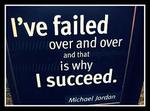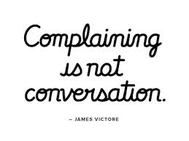Presenting…
“Anything worth succeeding in, is worth failing in.”
~by Edison?

That’s a little bit like presenting your WW Fenn. Some of you gifted with great recall will present a flawless version of your poem or passage. Some of you who have recited your piece many times over with nary a stumble in your room, in the car on the way to school, or even just before you get on stage–but will blank out, stumble, and stammer through those same words you thought you knew and knew by heart twenty times already–only to have those same words fail you in the heat of the moment.
…but though the words may fail you, you have not failed. The only way you could possibly fail is not to try to succeed, and from what I have seen so far almost all of you are trying to succeed, and in the end that is all that really matters, for in the end I always hear Thoreau’s words ringing in my head: “Do not measure a man by what he is, but by what he aspires to be.”
Always be able to say, “At least I tried…”
You Are All a Bunch of Punks
Poetry without form is like tennis without a net.
~Robert Frost
Let It Snow, Let It Snow…
You can’t kill time without wounding eternity.
~Henry David Thoreau
As much as any of you, I feel the need to rest; I feel the pressure of school, life, and family in much the same ways you do. What I might feel more acutely is the finiteness of time. I know that todays and tomorrows come and go like leaves in a storm, and if tomorrow I see a field of white in my backyard, then I damn well better see my tracks in the snow–the smoking gun proof that I did something with my day: I need to be able to say, “Yeah, I made that snowman; I read that book, penned that poem, and sang that song.” I need to know that I cooked those meatballs, cleaned that room, and stacked that wood. I want my neighbor to come home surprised that his driveway has been shoveled; I want my wife to discover that I can actually fold clothes, and I want my kids to “see” that there is more to the day than an iPad, Xbox, and “Duck Dynasty.”
Do I want you to do some English work? Yes, I do. Open your journal and pen a few thoughts. Go to your classmate’s blogs and journals and leave some comments—make someone else’s day as well as your own. Actually figure out the comma rules. Read what you need to read. End the day with more in the do column than in the didn’t column. It is a recipe for life that works.
Leave some tracks in the snow.
Practice wisdom.
And smile.
Quit Your Whining
Anything worth succeeding in is worth failing in
~Ben Franklin
The Silver Apples of the Moon.
Stories are a communal currency of humanity.
― Tahir Shah, In Arabian Nights
The most powerful and enduring connection we share as a human race is our desire and need to share stories. We engage in the art of storytelling more than most of us ever realize; whether we are describing our kids’ soccer games, critiquing the latest HBO series, telling a ribald joke, or remembering a long lost friend, event, memory, book, or experience. We listen to stories in songs, in long-winded meetings, in late night BBC broadcasts or self aggrandizing talk radio, on long car rides, and in intimate conversations with friends and lovers. We tell stories for reasons that are so deeply embedded in our psyche and DNA that storytelling is a natural and intuitive response to almost any situation. Sometimes, when stuck with a rather boorish person, we wonder why the sam hill that person insists on telling insipid stories; but, most of the time we listen, reflect, and respond—usually with stories of our own. It is out of this verbal give and take—our personal and cultural oral tradition—that we reflect and grow and expand the range of our limitations. It is our way to “shuffle off our mortal coil” while still alive. Through stories we live outside and beyond the confines of our short sojourn on earth, but while we are here and struggling through the vicissitudes of everyday life, it is stories that feed our roots and spread our canopy upwards into an infinite sky.
Stories that are worth telling once are worth retelling again and again. Out of this stream of unconscious revision a story is perfected until that story becomes part and parcel of our personal, interconnected, and communal eternity. The best stories survive the ravages of time because we know and sense with an almost mystic unknowingness that a particular story is too good or important to forget. These stories become the canons of our universal literature. We go back to those stories like spawning salmon to the streams of their birth. We need to know our source, and the best and most enduring stories lead us there, even against the tides, currents, and shoals that seem to bar the way. We need to tell and hear and read the stories that bring us to these places. We need to limit the trivial and search for and embrace the profound stories that have weathered the ravages of time. We need to ask ourselves why we read what we read, listen to what we choose to listen to, and tell what we feel needs to be told. We can’t go on accepting the debased and vapid simply because it is there and easy at hand in its glorified, extolled, and commercialized abundance. We need to seek the higher fruit and walk among the dappled grass and pluck until time and time is done, the the silver apples of the moon [and] the golden apples of the sun.*






